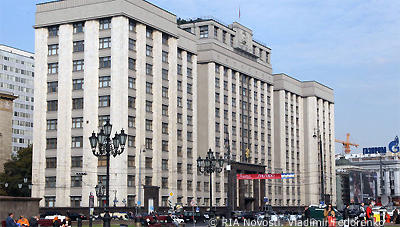RUSSIALINK: “Over 20 NGOs appeal to Russian ombudsman, Council of Europe over broadening of foreign agent list, tightening of requirements” – Interfax

MOSCOW. Nov 26 (Interfax) – Russian non-governmental organizations (NGOs) have appealed to Russian Commissioner for Human Rights Tatyana Moskalkova and Council of Europe Commissioner for Human Rights Dunja Mijatovic over bills introducing changes to their operations that have been submitted to the Russian State Duma.
“More than 20 Russian NGOs, among them International Memorial and the Memorial Human Rights Centers, have addressed the human rights commissioner of the Russian Federation and the Council of Europe Commissioner for Human Rights in connection with a number of bills submitted to the State Duma of the Russian Federation. The authors of the appeal have called on Tatyana Moskalkova and Dunja Mijatovic to take measures within the remit of their mandates to protect Russian civil society,” according to a statement published on the website of International Memorial.
The aforementioned bills, which propose introducing changes to NGOs’ operations, “are designed to suppress the activities of Russian non-governmental organizations, civil society associations, and branches of international non-governmental organizations, to further restrict Russian citizens’ rights to freedom of association, freedom to peaceful assembly, freedom of expression, and freedom to distribute and receive information.”
The changes proposed in the bills, should they enter into force, will enable the state to exercise tighter control over the country’s civil society, they said.
“The adoption of these bills will deprive civic organizations of the ability to continue their work and will deprive a large number of citizens of our country and other people who legally live here of access to qualified assistance to protect their civic, political, and social rights, the right to habitat, the rights to education and medicine services and in other fields of work of Russian civil society,” they said.
The authors of the address added that, if these bills are passed, it will become far more challenging to organize rallies, demonstrations, processions, and pickets in Russia.
The aforementioned bills propose designating as foreign agents individuals engaged in political activity or collecting military-technical information. Such persons will be barred from holding state and municipal posts, will be banned from accessing state secrets, will be obliged to label any materials distributed by them as “foreign agent” and to regularly submit reports detailing their activities and spending to state authorities. In addition, the bills propose including NGOs engaged in political activity and receiving funds from abroad in the list of foreign agents.
In accordance with the bills, NGOs designated as foreign agencies will be obliged to submit programs and “other documents” on their planned events and subsequently reports on their implementation (or information that such events did not take place) to the Russian Justice Ministry. The Justice Ministry will be authorized to ban such organizations from pursuing these or those programs. A list of reasons for imposing such a ban has not been provided. If any NGO fails to comply with the ban, the Justice Ministry can immediately ask the court to shut it down.
On November 23, 50 Russian civil society organizations appealed to the United Nations over the tightening of laws regarding NGOs in Russia, the Moscow Helsinki Group said.
